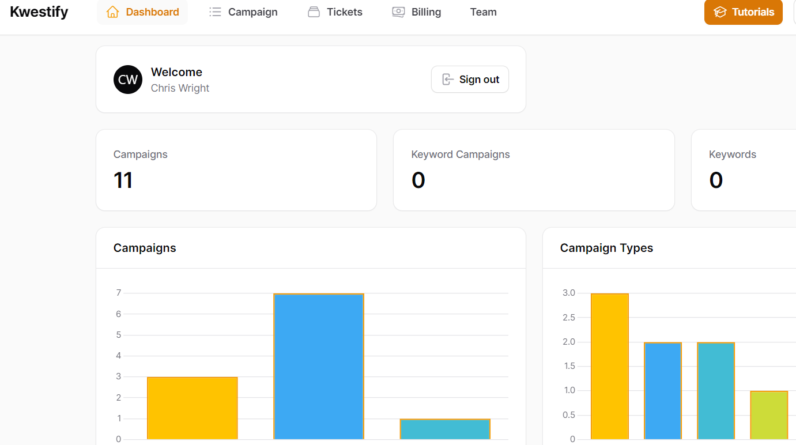
You’re ready to take your affiliate marketing business to the next level, but you’re not quite sure how to build a loyal and engaged audience. Don’t worry, we’ve got you covered! In this article, we’ll explore some effective strategies to help you cultivate a thriving audience for your affiliate marketing business. Whether you’re a seasoned marketer looking for new tactics, or a beginner eager to learn the ropes, these tips and tricks will empower you to attract, engage, and retain your target audience like never before. So, let’s dive in and discover how you can build an audience that’s not only interested in what you have to offer, but also enthusiastic about spreading the word!
Understanding Affiliate Marketing
Affiliate marketing is a type of performance-based marketing where businesses reward individuals, known as affiliates, for promoting their products or services and driving customers to their website. It is a win-win situation for both the business and the affiliate. The business benefits from increased visibility and sales, while the affiliate earns a commission for each successful referral they make.
How does affiliate marketing work?
In affiliate marketing, the process typically starts with the affiliate joining an affiliate program offered by a business. The affiliate is then provided with a unique tracking link or code that they can share with their audience. When someone clicks on the affiliate’s link and makes a purchase, the transaction is tracked, and the affiliate is credited with a commission.
Benefits of affiliate marketing
Affiliate marketing offers numerous benefits for both businesses and affiliates. For businesses, it is a cost-effective way to expand their reach and increase sales without the need for a large marketing budget. By leveraging the audience and influence of affiliates, businesses can tap into new markets and target audiences they may not have been able to reach otherwise.
For affiliates, it is an opportunity to monetize their online presence and earn passive income. With affiliate marketing, there is no need to create a product or handle customer support. Affiliates can focus on promoting products or services that align with their niche and audience, which can lead to higher conversions and commissions.
Defining Your Target Audience
Before diving into affiliate marketing, it is essential to define your target audience. Understanding who your potential customers are will help you tailor your promotional efforts and increase your chances of success.
Identifying your niche
To define your target audience, start by identifying your niche. A niche is a specialized segment of the market that focuses on a specific product or service. By narrowing down your focus, you can position yourself as an expert in that particular area and attract a more engaged and interested audience.
Researching your target market
Once you have identified your niche, conduct thorough research to understand your target market. Look for demographic information, interests, preferences, and pain points of your ideal customers. This research will help you create content and promotions that resonate with your audience and increase the likelihood of conversions.
Creating buyer personas
To better understand your target audience, create buyer personas. Buyer personas are fictional representations of your ideal customers, incorporating their demographics, interests, behaviors, and motivations. By visualizing your target audience, you can tailor your marketing efforts to address their specific needs and preferences.
Creating a Compelling Website
A compelling website is crucial for the success of your affiliate marketing business. It is the digital storefront where you showcase your expertise, provide value to your audience, and ultimately drive conversions.
Choosing the right domain name
When choosing a domain name, opt for something memorable, relevant to your niche, and easy to spell. A good domain name is like a brand ambassador for your business – it should resonate with your audience and convey your expertise.
Selecting a user-friendly website platform
Choose a user-friendly website platform that allows you to easily create and manage your website. Platforms like WordPress, Wix, or Squarespace offer intuitive interfaces, customizable templates, and plugins that can enhance your website’s functionality.
Designing an attractive and professional layout
Invest in creating an attractive and professional layout for your website. Choose a clean and modern design that aligns with your brand and draws attention to your content. Utilize appealing colors, clear typography, and user-friendly navigation to enhance the overall user experience.
Optimizing for mobile devices
With the increasing use of smartphones and tablets, it is essential to optimize your website for mobile devices. Ensure that your website is responsive and adjusts seamlessly to different screen sizes. This will help you reach a wider audience and provide a positive browsing experience.
Ensuring easy navigation
Make sure your website is easy to navigate. Organize your content into categories and use clear navigation menus to help visitors find what they are looking for quickly. A user-friendly navigation system reduces the chances of visitors leaving your site due to frustration.
Including relevant and engaging content
Content is the backbone of your affiliate marketing strategy. Create high-quality, relevant, and engaging content that educates and informs your audience. Develop blog posts, product reviews, tutorials, and guides that address your audience’s pain points and provide solutions.
Incorporating visual elements
Visual elements, such as images, videos, and infographics, can enhance the overall user experience and make your content more engaging. Incorporate relevant visual elements throughout your website to break up text, capture attention, and convey information effectively.
Using effective calls-to-action
Include compelling calls-to-action (CTAs) throughout your website to prompt visitors to take the desired action. Whether it’s signing up for a newsletter, purchasing a product, or following you on social media, a well-placed CTA can increase conversions and help grow your audience.
Utilizing Search Engine Optimization (SEO)
Search engine optimization (SEO) is the practice of optimizing your website to rank higher in search engine results pages. By optimizing your website for relevant keywords, you can increase organic traffic and attract a more targeted audience.
Conducting keyword research
Keyword research is the foundation of effective SEO. Use keyword research tools to identify keywords and phrases that are highly relevant to your niche and have a reasonable search volume. Focus on long-tail keywords that are specific to your niche and have less competition.
Optimizing your website’s on-page elements
Optimize your website’s on-page elements, including page titles, meta descriptions, headers, and URL structures. Incorporate your target keywords naturally into these elements to signal to search engines what your content is about.
Creating high-quality and informative content
Produce high-quality and informative content that aligns with the interests and needs of your target audience. In-depth blog posts, product reviews, and guides can establish you as an authority in your niche and attract organic traffic.
Building backlinks
Backlinks are a crucial factor that search engines consider when determining the relevance and authority of your website. Seek opportunities to earn backlinks from reputable websites by guest posting, participating in industry forums, or reaching out to influencers in your niche.
Utilizing local SEO strategies
If your affiliate marketing business targets a specific geographic area, invest in local SEO strategies. Optimize your website for location-specific keywords, create local business listings, and encourage customer reviews to improve your visibility in local search results.
Leveraging Social Media
Social media platforms provide a valuable opportunity to reach and engage with your target audience. Choose appropriate platforms that align with your niche and audience to maximize your impact.
Selecting appropriate social media platforms
Identify the social media platforms that your target audience is most active on. Focus your efforts on those platforms, whether it’s Facebook, Instagram, Twitter, LinkedIn, or Pinterest. A targeted approach ensures that you are connecting with your audience where they spend most of their time.
Creating engaging profiles and bios
Optimize your social media profiles and bios to reflect your brand identity and attract your target audience. Use compelling visuals, write engaging bios, and include relevant keywords in your profiles to enhance your visibility and grab the attention of potential followers.
Posting relevant and valuable content
Consistently post relevant and valuable content on your social media platforms. Share a mix of your own content, curated content, and industry news to keep your audience engaged. Focus on providing value, sparking conversations, and addressing your audience’s needs.
Utilizing hashtags effectively
Hashtags are an effective way to increase your social media reach and attract new followers. Research industry-specific hashtags and incorporate them into your posts to increase visibility. However, use hashtags strategically and sparingly to avoid coming across as spammy.
Engaging with your audience
Be actively engaged with your social media audience by responding to comments, messages, and mentions. Build meaningful relationships by taking the time to listen, answer questions, and provide valuable insights. Engaging with your audience strengthens trust and loyalty.
Collaborating with influencers
Collaborating with influencers in your niche can significantly boost your affiliate marketing efforts. Identify influencers who align with your brand and have a genuine connection with your target audience. Partner with them for content creation, promotions, or joint projects to expand your reach and drive conversions.
Running targeted ad campaigns
Consider running targeted ad campaigns on social media platforms to reach a wider audience and increase brand awareness. Take advantage of the precise targeting options offered by platforms like Facebook Ads or Instagram Ads to reach the right people with your promotions.
Implementing Email Marketing
Building an email list is a powerful tool for affiliate marketing. Email marketing allows you to nurture relationships with your audience, provide valuable content, and promote relevant products or services.
Building an email list
Offer incentives, such as exclusive content or discounts, in exchange for visitors’ email addresses. Create opt-in forms on your website and landing pages to encourage sign-ups. Regularly promote your email newsletter or updates through your blog and social media platforms.
Creating valuable lead magnets
To entice visitors to join your email list, offer valuable lead magnets. Lead magnets are free resources, such as e-books, checklists, or templates, that provide value to your audience in exchange for their contact information. Create lead magnets that address specific pain points or provide actionable tips.
Designing eye-catching email templates
Design eye-catching and professional email templates that reflect your brand identity. Use a consistent layout, branding elements, and compelling visuals to grab the attention of your subscribers. Ensure that your emails are mobile-responsive and visually appealing across different devices.
Crafting engaging email content
Craft engaging email content that resonates with your audience. Personalize your emails by addressing your subscribers by their names and segment your email list to send targeted content based on their interests or previous interactions. Experiment with different types of emails, such as newsletters, product updates, or promotions, and monitor the response to optimize your strategy.
Segmenting your email list
Segment your email list based on different criteria such as demographics, interests, or purchase history. By sending targeted content to specific segments, you can improve engagement rates and conversion rates. Tailor your promotions and recommendations based on the unique needs and preferences of each segment.
Automating email campaigns
Utilize email marketing automation tools to streamline your email campaigns. Set up automated sequences that are triggered by specific actions or time intervals. Automated emails, such as welcome emails, abandoned cart reminders, or post-purchase follow-ups, help you nurture relationships and drive conversions without constant manual effort.
Analyzing email performance
Regularly analyze your email performance to identify areas for improvement. Monitor metrics such as open rates, click-through rates, and conversion rates to gauge the effectiveness of your campaigns. Use A/B testing to experiment with different subject lines, content formats, or CTAs and optimize your emails based on the results.
Offering Incentives and Promotions
Incentives and promotions are powerful tools for encouraging conversions and fostering customer loyalty. Implementing these strategies can help you stand out in a competitive affiliate marketing landscape.
Developing attractive offers and promotions
Create attractive offers and promotions that entice your audience to take action. Offer exclusive discounts, limited-time deals, or bundle packages that provide added value to your audience. Effective promotions can create a sense of urgency and drive immediate conversions.
Implementing referral programs
Referral programs can be a valuable source of new leads and customers. Encourage your audience to refer their friends or followers to your products or services by offering incentives or rewards. This not only increases your customer base but also strengthens customer loyalty and engagement.
Providing exclusive discounts or coupons
Exclusive discounts or coupons can be effective in motivating your audience to make a purchase. Negotiate with the businesses you are affiliated with to provide special discounts for your audience. This creates a win-win situation, as your audience receives added value, and you earn a commission from the resulting sales.
Organizing contests or giveaways
Contests or giveaways can generate excitement and engagement among your audience. Run social media contests or giveaways where participants have to share, like, or comment on your posts to enter. This increases brand visibility, expands your reach, and generates user-generated content that you can leverage for further promotion.
Collaborating with other businesses for joint promotions
Collaborating with other businesses for joint promotions can help you tap into new audiences and increase brand awareness. Identify non-competing businesses that share your target audience and collaborate on cross-promotions, giveaways, or joint content projects. This partnership can lead to mutual benefits and growth for both parties.
Building Relationships with Influencers
Influencers have a significant impact on consumer behavior and can be valuable allies in your affiliate marketing journey. Building relationships with influencers can expand your reach, establish credibility, and drive more conversions.
Identifying relevant influencers in your niche
Find influencers who are relevant to your niche and resonate with your target audience. Look for individuals or social media accounts with a significant following, engaged audience, and a genuine interest in your industry. Ensure that their values and style align with your brand image.
Engaging with influencers through social media
Engage with influencers on social media platforms by liking, commenting, and sharing their content. Build a rapport by engaging in meaningful conversations and sharing valuable insights. This shows your support and develops familiarity that can lead to a potential partnership.
Offering value to influencers
Offer value to influencers by sharing their content, featuring them in your blog posts, or providing testimonials. By promoting and supporting influencers, you demonstrate your genuine interest in their work and can attract their attention. This creates an opportunity for collaboration and partnership.
Collaborating on content creation
Collaborate with influencers on content creation to leverage their expertise and credibility. Feature influencers in your blog posts, podcasts, or videos, or invite them to contribute guest posts or interviews. This collaboration benefits both parties by expanding their reach and attracting new audiences.
Forming affiliate partnerships with influencers
Form affiliate partnerships with influencers to mutually benefit from each other’s audience and expertise. Offer influencers a commission for each successful referral they make to your products or services. This incentivizes them to promote your offerings and can result in increased visibility and sales.
Engaging in Content Marketing
Content marketing plays a crucial role in establishing your authority, attracting your target audience, and driving conversions. By creating valuable and engaging content, you can position yourself as a trusted resource and build a loyal following.
Creating informative blog posts
Publish informative and well-researched blog posts that address your audience’s pain points and provide valuable insights. Focus on topics that align with your niche and demonstrate your expertise. Write in a conversational tone and aim to educate and entertain your readers.
Publishing guest posts on influential websites
Expand your reach and establish credibility by publishing guest posts on influential websites in your industry. Look for websites that accept guest contributions and have a substantial following. Craft high-quality and relevant content that provides value to the readers of those websites.
Developing engaging video content
Video content has become increasingly popular and can capture your audience’s attention in a unique way. Create engaging video content, such as product reviews, tutorials, or behind-the-scenes videos. Utilize platforms like YouTube or TikTok to reach a wider audience and optimize your videos for search engine and social media visibility.
Starting a podcast
Starting a podcast can be an effective way to reach and engage with your target audience. Choose topics that align with your niche and invite industry experts or influencers as guests. Provide valuable insights, tips, and discussions that resonate with your audience and establish you as a thought leader in your industry.
Creating infographics
Infographics are visually appealing and shareable content formats that can simplify complex information and attract attention. Create infographics that present statistics, data, or step-by-step guides related to your niche. Share them on your website, social media platforms, or as contributions to other websites in your industry.
Offering free resources or guides
Offer free resources or guides that provide value to your audience. This could be an e-book, checklist, template, or toolkit that addresses your audience’s pain points and offers actionable solutions. The free resources serve as lead magnets, helping you grow your email list and nurture relationships with your audience.
Analyzing and Optimizing Performance
Analyzing and optimizing the performance of your affiliate marketing efforts is crucial for continuous improvement and growth. By closely monitoring key metrics and staying up to date with industry trends, you can make data-driven decisions and maximize your success.
Setting up analytics and tracking tools
Set up analytics and tracking tools, such as Google Analytics, to monitor the performance of your website, email campaigns, and social media presence. Configure conversion tracking to measure the effectiveness of your affiliate promotions and identify opportunities for improvement.
Monitoring website traffic and conversions
Regularly monitor your website traffic and conversion rates to assess the effectiveness of your promotions and content. Analyze website metrics such as page views, unique visitors, bounce rate, and time on site to identify patterns and areas for improvement. Use this data to optimize your website layout, content strategy, and user experience.
Analyzing user behavior and engagement
Dive deeper into user behavior and engagement metrics to gain insights into how your audience interacts with your website and content. Analyze metrics such as click-through rates, average session duration, and scroll depth to assess the effectiveness of your CTAs, content engagement, and readability.
Identifying areas for improvement
Based on your data analysis, identify areas for improvement in your affiliate marketing strategy. Are there specific pages or content pieces that are underperforming? Are there promotional strategies that are not generating the desired results? Identify the gaps and brainstorm ways to optimize and refine your approach.
Testing and optimizing different strategies
Implement A/B testing to compare the performance of different strategies, layouts, or content formats. Test different calls-to-action, email subject lines, landing page designs, or social media ad copies. By experimenting with different variables, you can identify what resonates best with your audience and optimize your strategy accordingly.
Staying updated with industry trends and changes
Affiliate marketing, like any other digital marketing field, is constantly evolving. Stay updated with industry trends, algorithm changes, and best practices to ensure that your strategies remain effective and relevant. Join industry forums, follow thought leaders, and participate in relevant webinars or conferences to stay informed and ahead of the curve.
In conclusion, building an audience for your affiliate marketing business requires a strategic and multifaceted approach. From understanding the fundamentals of affiliate marketing to creating a compelling website, leveraging SEO and social media, implementing email marketing, and analyzing performance, each step is crucial in establishing yourself as a trusted authority and driving conversions. By continuously refining your strategies, optimizing your efforts, and staying up to date with industry trends, you can build a loyal and engaged audience that drives the success of your affiliate marketing business.






